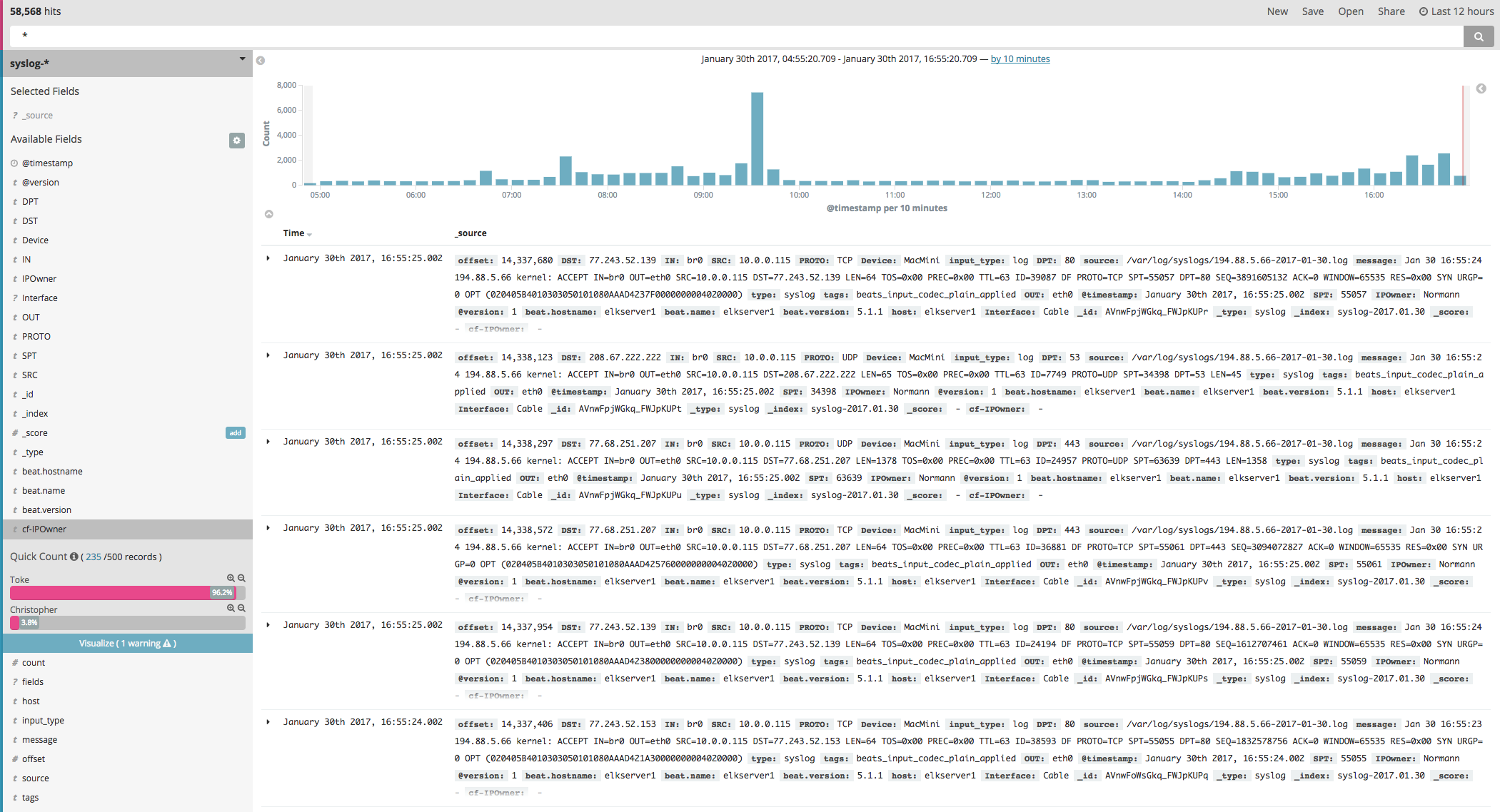On my first attemps to create a "replica" of the Splunk Home Monitor, where syslogs from my Asus Router are parsed, I used Logstash for translating IP Addresses to the Owner and Device type in my 10-beats-input.conf file:
if [type] == "syslog" {
if [SRC] == "10.0.0.185" {
mutate
{
add_field => { "IPOwner" => "Christopher" "Device" => "Galaxy" "Interface" => "Wifi" }
}
}
if [SRC] == "10.0.0.190" {
mutate
{
add_field => { "IPOwner" => "Device" "Device" => "Skur Cam" "Interface" => "Cable" }
}
}
...
...
the problem her, is that the data is persistent in Elasticsearch, and Changes to IP's and Devices are not reflected. In Splunk I solved this with a lookup, but now we can do it in Kibana with scripted fields in the new "Painless" language that also states : The Painless syntax is similar to Groovy.
Scripted fields are found in the Management section:
So, my field in the fist successfull attempt looks like:
if (doc['SRC.keyword'].value == "10.0.0.185") {
return "Christopher"
}
But, the docs also state: "Java’s control flow statements are supported, with the exception of the switch statement.", so we cant use the switch, hence I will base it on if's:
if (doc['SRC.keyword'].value == "10.0.0.104") {
return "Toke"
}
if (doc['SRC.keyword'].value == "10.0.0.185") {
return "Christopher"
}
...
...
...
...
if (doc['SRC.keyword'].value == "10.0.0.196") {
return "Toke"
}
And the success is eminent:
In Logstash I had the possibility to return 3 fields in one bulk (IPOwner, Device and Interface), but I assume that with Scripted fields I need to make a scripted field pr. field.

